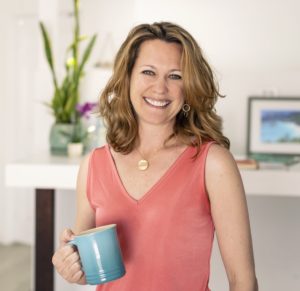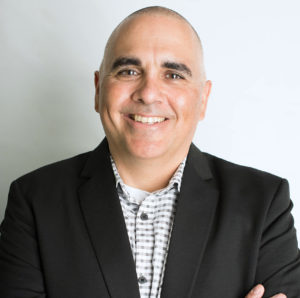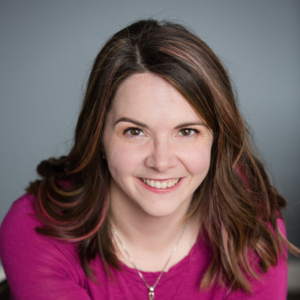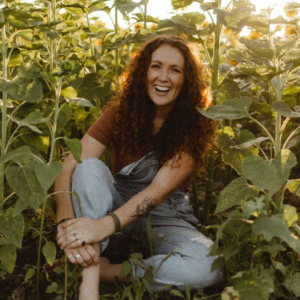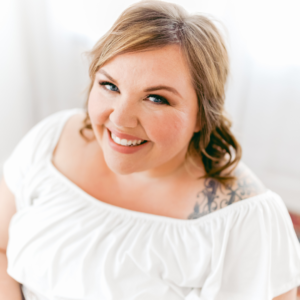Welcome to my October 2020 Income Report!
Every month I publish an income report to take you behind the scenes of my online business and reveal exactly how much money I make, how I make it, how much I spend and lessons learned along the way
I started my business doing freelance web design back in 2014 as a side hustle, burnt myself out on that, created the Free 5 Day Website Challenge to teache entrepreneurs how to DIY their websites (which is probably how you found me) – and I made money from that through affiliate commissions.
The Free 5 Day Website Challenge brought me a whole new niche of web design clients… so I figured out what was broken with my systems from the first time around freelancing, got my web design packages profitable, and for a few years I was making money doing both 1:1 web design + affiliate marketing.
By 2018 I'd grown my revenue to the point where I was able to replace my paycheck and still pay taxes + business expenses – and so I quit my day job!! Woohoo!!!
By then I’d also started teaching entrepreneurs how to market themselves online without relying ads or being on social media 24/7. If you want to learn more about that – you can watch a free training right here!
I also started teaching new and established web designers how to create profitable, sustainable + scalable web design businesses that generate a full time income.
🔥BTW – If you are a web designer (or want to start a web design business) and making a full-time, sustainable, scalable income sounds like your dream life… I'm going to be doing an invitation-only live private training NEXT MONTH to show you how. If you want to get on the waitlist to find out how to apply to get your invitation to the training – you can do that right here!
October 2020 Numbers
After 6 years in business, my minimum baseline revenue that I shoot for each month is $15,000. That covers the two paychecks of $3000 that I pay myself, my business expenses, team + mentorship budget, and taxes.
And just so you know… I didn’t start there!!!
Here's what my numbers looked like from day one just for your frame of reference:
Normally at this point in my income report… I'd give you my numbers for October.
But I couldn't this time…becuase started writing this before even looking at them this month…
If you’ve listened to my previous income reports you know that I’ve got some lingering issues around my money mindset.
Old habits die hard as they say…
So as I was logging into my accounts to download my transactions for October so I could prep my income report I was thinking, “Ugh, I don’t know if I want to see this… I feel like October wasn’t that great of a month… my credit card bill was pretty high and I don’t feel like I saw that much revenue come through, and I know I paid a lot out to affiliates this month…”
It’s almost like the dread I feel sometimes stepping on the scale when I know I’ve been slacking on my planning and I’ve been overeating and I’m not managing my mind around it – like, “Shannon, it doesn’t mean you’re a lazy slacker if you gained a few pounds, it means you need to figure out why you’re not planning and why you’re overeating and then start with the low-hanging fruit.“
Anyway.
Here’s why I think this is coming up… this not wanting to look at October’s numbers.
I started writing this income report standing in the kitchen of my new house.
At the time of writing, it'd been 13 days since we moved out of our old house and into our camper to await construction to be done (and I’m truly grateful that we bought our camper as a wedding gift to each other back in 2012 when we got married because it’s super convenient to just be parked on the property right now and using the house even if we’re not living in it yet).
So the day before I started writing this, I was pulling together the final numbers to see where we were at financially on the house.
This might be super boring to some of you, but I’m gonna share it with you anyway:
We wanted to stay in our current house while building the new one. Because I run this business from home and it’s a significant portion of our livelihood, I wanted that consistency to keep the business uninterrupted.
But we needed the equity in our current home to use as a down payment to build the new home…
….So we did a blanket loan, where we borrowed against the value of our current home, the land we’d bought back in 2018 to build the new house on, and the value of the new construction.
We basically put everything we owned up for collateral and rolled it all up into one massive, giant, interest-only loan to pay for building this house.
Like, the amount of this loan gave me sticker shock. 🤯
And I know someday I’ll look back on it and think, “Oh isn’t that cute? You thought THAT was a lot of money!” You make that in a year now!”
But my money mindset is not quite there yet.
Oh, and did I mention that we signed those loan docs two weeks into the pandemic shutdown?
I talk about that decision back in Episode 284 – my March Income Report – and it wasn’t a decision we made lightly… but ultimately I decided that no matter what, if this business tanked, if my husband Floyd lost his job and all of our money disappeared and we lost our current house, our land and the new house… we’d be okay.
It makes me think of the Chris Stapleton song that my husband and I have had on repeat since it came out. It’s called Starting Over and there’s a quote from it that I love – he says:
“Nobody wins afraid of losing
And the hard roads are the ones worth choosing Someday we'll look back and smile
And know it was worth every mile”
It makes me feel better when I'm scared about making “risky” decisions…
So anyway, I’m pulling together all these numbers – like the final cost for construction of the new place, what we netted after selling the old place, how much do we owe to pay off that blanket loan, how much will our new mortgage be, how much do we have leftover?
On one hand, it’s pretty much exactly in line with what we projected it would be, so that’s great. “Good job planning, Shannon + Floyd! No surprises there.”
On the other hand, I see that old scarcity thinking creeping in: “How much do we have leftover?”
That's the thought that stops me in my tracks and makes my chest tight and makes me make bad decisions, EVERY TIME.
As if there’s no more money EVER coming and we’re gonna run out. And then I think “We’re gonna run out because I spent so much money in October, and I probably didn’t make enough to offset it, and 💩💩💩.”
And this is all before I’ve run the actual numbers!!!
Seriously, I hadn’t even added it all up yet, and my mind was going WILD.
So I wanted to start writing my income report before I ran all the numbers, because I noticed I was thinking this way – and I just need you to know that I successfully run this business IN SPITE of all my crazy – and you can too 🙂
But the truth is…
There’s always more money where that came from. I believe in the value of what I offer. I know my programs and trainings are transformational. I understand WHY it’s imperative that I charge the right amount of money for them regardless of whether I personally NEED the money or not… because the transformation only happens when there’s enough risk on your part to make NOT succeeding NOT an option.
Let me say that again. And I think this might be the biggest lesson I’ve learned in 2020 if not in my entire business:
The amount you charge for your programs and services is completely unrelated to how much money YOU want or need to make or how much money you think your client can or cannot afford. It’s relative to the level of risk your client needs to take to make failure not an option and get the transformation or result they ultimately desire.
And that’s why it doesn’t matter what my numbers are for October. It doesn’t matter how much is “leftover” from the sale of the house.
I know that money is a flow, and more is on the way, and I know exactly how to make it happen.
And not in a woo-woo, “Oh, I just sit here and visualize it and it appears!” way, but in a very practical “I know exactly what actions to take to turn on the flow” way – even if those actions don’t immediate result in more money, they plant the seeds for it to come later.
That's what I teach my clients inside my programs to do, and that's what I do too.
Oh, that thought about my credit card being “high”? I put all my expenses on a Southwest Airlines card (to get points for travel… which I'm not doing right now but someday I'll be able to use those dang points again!) and I pay it off every month.
And even though I know that the money I spent that resulted in my credit card being “high” were carefully considered deliberate investments in the future of my company… I still had that old, scarcity-driven fearful thought.
It's okay, it's how I was raised, it's very well practiced and I just have to NOTICE I'm doing it and course correct.
Nobody wins afraid of losing, right?
So that was the little pep talk I gave myself before I ran my numbers LOL!! So FINALLY – here are my numbers for October 2020:
✨ Total Revenue: $13,888.56
- Affiliate Income: $3356.54
- Site-in-a-Snap Templates: $3960.35 (that’s my half of the total sales)
- Courses (Website Marketing Lab + Web Designer Academy) $4905.67
- Done For You & Consulting: $0
- Tech Masterclass Bundle: $1666
✨ Total Investments: $5332.96
- Tools I use to run my business: $1288.98
- Training, Coaching + Mentorship: $1675.00
- Team: $1813.00
- Affiliate Payouts: $555.98
Get the full breakdown of income, expenses and net profit month by month here.
✨ Net Profit: $8555.60
So yep, just like I thought, my revenue was less than $15,000…
And what was different in October from previous months is that I didn’t send out any emails inviting people to watch my free trainings that then invite them to join my programs.
In other words, I didn’t make any offers.
And making offers is the key to making money.
You can't make money without making OFFERS! Even if that means sending ONE email to your list letting them know how you can help them solve their problem – that's an offer.
I didn't do that in October.
But I have a really good reason WHY I didn’t make offers in October…
If you wanna hear the whole story and more… you gotta go listen to the full podcast episode!
If you wanna hear the whole story… you can push play on the podcast or read the transcript below 🙂


